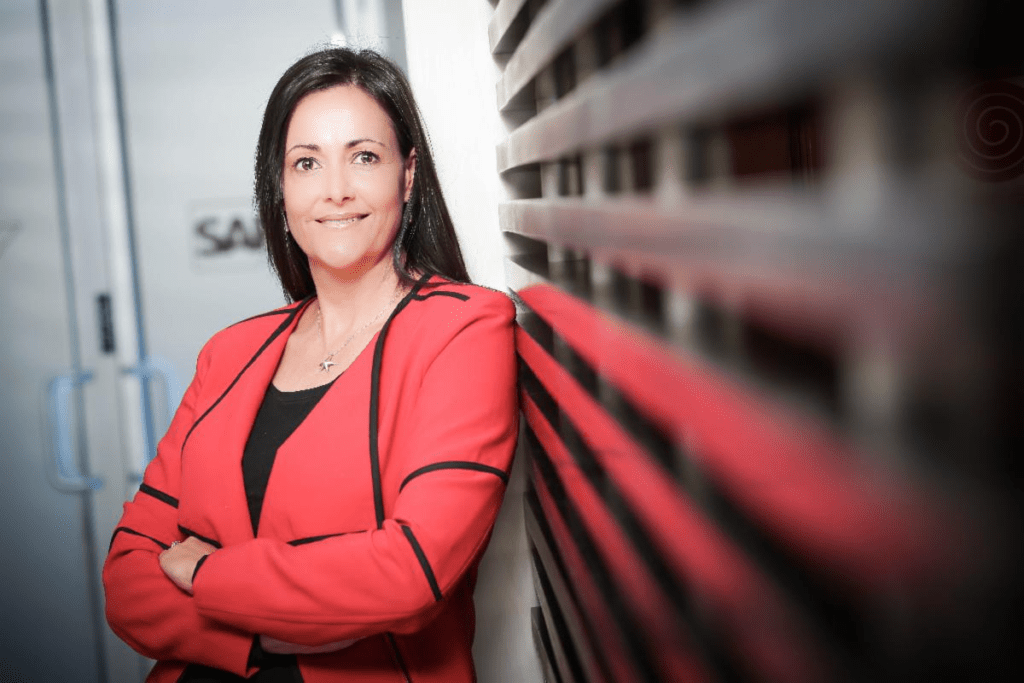
JOHANNESBURG, South Africa, 17th November 2021 -/African Media Agency(AMA)/- For most organisations operating on the African continent, the past 18 months have forced unprecedented change in how they operate at every level of their business.
From dealing with the initial impact of the pandemic, subsequent lockdowns and enabling a hybrid workforce, to digitising customer-facing and back-office processes and dealing with disruptions in the supply chain – organisations have had their hands full.
Join our WhatsApp Channel“The pace of change and the extent to which organisations have had to adapt are forcing business leaders to completely reimagine how their organisations operate,” says Tracy Bolton, chief operating officer at SAP Africa. “Organisations have had to rethink how they engage with customers, reengineer their supply chains, and completely transform their talent management capabilities to ensure the success of the business. And all indications are that further changes are inevitable as disruptions continue to affect the operating environment.”
One recent study found that more than three in four executives expect changed customer behaviour to continue after the pandemic. And while improving vaccination rates are making a return to the office likely, most organisations are expected to continue offering the option of a hybrid workforce where employees work from home at least some of the time.
“Changes in the workplace can cause immense stress to employees and managers alike,” says Bolton. “One recent survey of South Africans working from home found higher levels of stress and lower levels of productivity, with managers expressing concern over managing and motivating their remote workers.”
Organisations have been digitising their business processes at an unprecedented scale, with the pandemic accelerating digital transformation at 59% of global organisations. “Each time an organisation undergoes digital transformation, it brings new processes, which require changes in how employees operate,” says Bolton. “These changes can bring friction to the business and, if left unattended, cause misalignment within the organisation at a time when everyone needs to be working toward common goals.”
Chief operating officers have been in the hot seat as they try to guide their organisations through the impact of the pandemic. “Each change brings new challenges, as organisations are pushed out of their comfort zones in order to adequately adapt to their environment,” adds Bolton. “How well organisations conduct their change management efforts can greatly influence the extent to which new back-office or customer-facing operations benefit the business.”
Having helped guide SAP’s Africa market unit through the past 18 months, Bolton has some practical tips to help organisations improve their change management and ensure they successfully adapt to ongoing change and disruption.
1. Team up: “Set up change management project teams for each new initiative,” advises Bolton. “Establish clear governance parameters for who is involved, and secure the support of an executive sponsor to ensure the change project is driven from the top-down.”
2. Be clear: “Establish clear objectives for the change project, and communicate these upfront with all affected stakeholders. Ongoing stakeholder communication is essential as it significantly increases the likelihood of a successful project outcome.”
3. Train, train, train: “Empower the change management team and the super user involved in the change initiatives with the necessary training,” says Bolton. “This knowledge transfer can then cascade to other affected stakeholders and the broader organisation to ensure everyone is aligned with the changes.”
4. Monitor, measure, manage: “It’s essential that progress against the set objectives is tracked and measured,” advises Bolton. “Where needed, the team may need to adapt using a change management tool set and continuously communicate such changes back to the organisation to ensure everyone remains on board.”
5. Celebrate: “Take time to acknowledge progress and celebrate every success,” says Bolton. “By recognising the efforts of those driving change within the organisation, it becomes more likely that the changes will achieve a shift in mindset, which will help instil a change mindset for future change management efforts.”
Distributed by African Media Agency (AMA) on behalf of SAP Africa.
Visit the SAP News Center. Follow SAP on Twitter at @SAPNews.
About SAP
As the Experience Company powered by the Intelligent Enterprise, SAP is the market leader in enterprise application software, helping companies of all sizes and in all industries run at their best: 77% of the world’s transaction revenue touches an SAP® system. Our machine learning, Internet of Things (IoT), and advanced analytics technologies help turn customers’ businesses into intelligent enterprises. SAP helps give people and organizations deep business insight and fosters collaboration that helps them stay ahead of their competition. We simplify technology for companies so they can consume our software the way they want – without disruption. Our end-to-end suite of applications and services enables more than 440,000 business and public customers to operate profitably, adapt continuously, and make a difference. With a global network of customers, partners, employees, and thought leaders, SAP helps the world run better and improve people’s lives. For more information, visit www.sap.com.
Note to editors:
To preview and download broadcast-standard stock footage and press photos digitally, please visit www.sap.com/photos. On this platform, you can find high resolution material for your media channels. To view video stories on diverse topics, visit www.sap-tv.com. From this site, you can embed videos into your own Web pages, share video via email links, and subscribe to RSS feeds from SAP TV.
For customers interested in learning more about SAP products:
Global Customer Center: +49 180 534-34-24
United States Only: 1 (800) 872-1SAP (1-800-872-1727)
For more information, press only:
Delia Sieff, SAP Africa, +27 (11) 235 6000, delia.sieff@sap.com
Source : African Media Agency (AMA)

















Follow Us